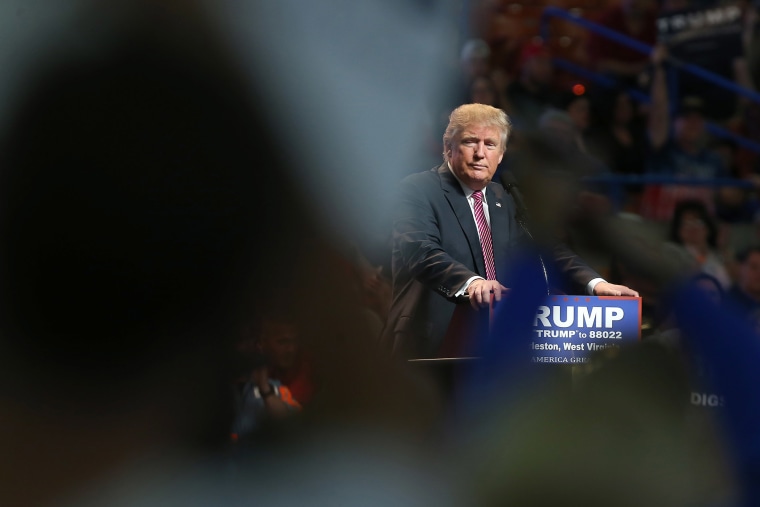Donald Trump has all kinds of problems as a presidential candidate -- he's unpopular, he's unqualified, he knows practically nothing about government or public policy -- but at least the New York Republican is extremely wealthy. If there's one aspect of this presidential campaign that should be easy for the presumptive GOP nominee, it should be his finances.
Ironically, however, money is proving to be one of Trump's biggest pitfalls.
The Wall Street Journal reported this week that Trump, who's abandoned his promises about self-financing, finds himself "reliant on party fundraisers who haven't all swung into action and aren't always in sync with his campaign promises."
The WSJ article quoted Fred Malek, the finance chairman of the Republican Governors Association and a leading fundraiser for past GOP nominees, describing Trump's fundraising disadvantage as "huge and not widely understood." Malek added, "Unless he's willing to write a huge personal check, which is unlikely, I believe Trump will have a financial disparity of $300 million to $500 million."
What about Trump's boasts last summer that he's prepared to spend $1 billion on the presidential race? Those claims now appear ridiculous. He has no intention of writing that kind of check; few believe he'll be able to raise anywhere close to that kind of money; and in an interview with Bloomberg Politics yesterday, Trump downplayed the figure's significance.
Presumptive Republican presidential nominee Donald Trump distanced himself from his own fundraising estimate of $1 billion, refusing to commit to collecting even half that amount, and saying his campaign didn't need much money to win the White House. Trump, who has held just two major fundraising events since agreeing three weeks ago to help the party raise cash, said he would rely instead more on his own star power as a former reality-TV personality to earn free media, and has no specific goals for how much money his campaign needs.
"There's no reason to raise that," Trump told Bloomberg Politics about raising $1 billion. "I just don't think I need nearly as much money as other people need because I get so much publicity. I get so many invitations to be on television. I get so many interviews, if I want them."
If only it were that simple.
When Hillary Clinton and her allies raise money for the general election, much of the money will go towards campaign advertising -- which means they'll pick the issues, they'll control the message, they'll target the audience, and they'll manage their own calendar.
When Donald Trump relies on his "star power as a former reality-TV personality to earn free media," he's referring to news interviews -- in which media professionals pick the issues and press the Republican candidate to explain and/or defend himself. If recent history is any guide, Trump has an unfortunate habit of making problematic comments during many of these interviews, which creates a controversy he and his campaign have to spend days dealing with.
There's a qualitative difference, in other words, behind carefully crafted advertising and unpredictable interviews. To assume the latter is a substitute for the former is a mistake.
Trump is working from the assumption that publicity is the solution to his problems, and to borrow a cliche, there's no such thing as bad publicity. It's a strategy that makes his party nervous for a reason.
Postscript: Just as an aside, now that Trump is raising money from GOP mega-donors, he looks an awful lot like his former Republican rivals whom he condemned as "puppets" of moneyed interests. Asked recently for an explanation, he said this money is only going to the Republican Party, not his campaign. For the record, this is demonstrably untrue.
